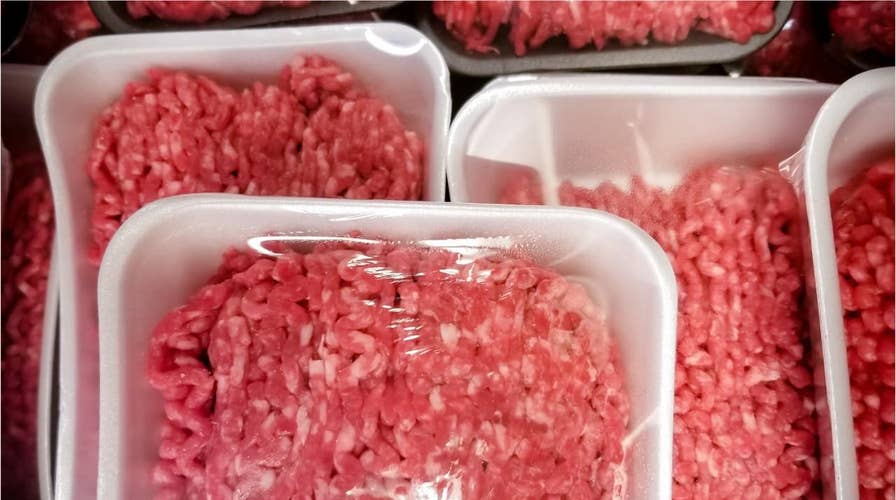Raw beef recalled, deemed 'unfit for human consumption'
'Unfit for human consumption' raw beef has been recalled in California and Oregon.
A 10-year-old French boy who contracted a severe E.coli infection from beef roughly eight years ago has died from complications related to the infection, French media reports.
The boy, Nolan Moittie, died Saturday “as a consequence of his poisoning,” his family’s lawyer, Florence Rault, told Agence France-Presse (AFP).
In 2011, Nolan ate a burger that was made from meat purchased from the supermarket Lidl. The meat was contaminated with E.coli, specifically Shiga toxin-producing E.coli, per Food Safety News.
WHY WASHING CHICKEN UPS RISK OF FOODBORNE ILLNESS
Nolan, who was almost 2 years old at the time, later developed a type of kidney failure that was associated with the infection. He also suffered paralysis and nerve damage and was left mentally handicapped as a result of the E.coli infection.
"His body finally gave up."
"His limbs became deformed, his bones would break and he had to undergo different kinds of surgeries. He could not eat, swallow, speak or move because he had no more ability to coordinate," Rault told the AFP of Nolan, who was fed via a feeding tube.
Eventually, "His body finally gave up... as a result of all the pathologies, which only got worse," she added.
When Nolan was initially sickened, 12 other children were also sickened from meat purchased at the same supermarket. Nolan is the only one of the victims who has died to date.
"We share the pain of Nolan's family and will seek to assure our support during their suffering," Lidl France said on Twitter.
In 2017, Guy Lamorlette, a former manager at SEB-Cerf, a company linked to the outbreak, was jailed over the incident, per the BBC.
E. coli are bacteria found in both human and animal intestines.
PIG EAR SALMONELLA OUTBREAK LINKED TO 143 ILLNESSES PROBED BY CDC, FDA
While most strains are harmless, some are pathogenic and can cause illness, which typically includes stomach cramps and diarrhea, according to the CDC. The bacteria can be transmitted through contaminated water or food and sometimes through contact with other people and animals.
While most people recover after several days, some E. coli infection cases can be life-threatening. This is especially true for pregnant women, newborns, older or elderly adults and those with weakened immune systems.
The CDC recommends thorough hand-washing, washing fruits and vegetables, cooking meat thoroughly and avoiding cross-contamination in food preparation areas as ways to prevent E. coli illness.








































